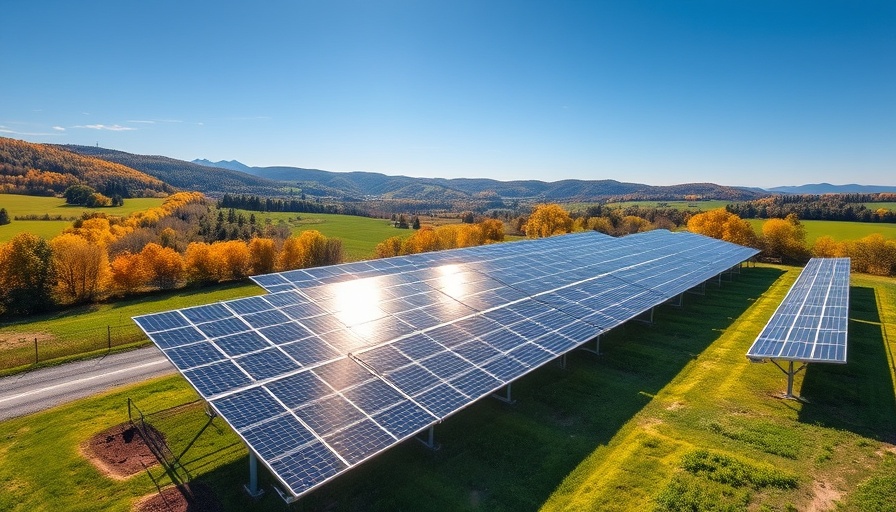
Renewables Keep the Lights On: A Lesson for Hospitality Professionals
On one of New England's hottest days this summer, renewable energy resources showcased their crucial role in preventing power outages and ensuring consumer savings. According to a report by Acadia Center, solar energy, alongside battery storage, significantly supported the region’s energy grid during a time of peak demand, demonstrating the viability of sustainability initiatives that the hospitality sector can implement. This resilience of renewables on June 24, as the temperature soared above 100°F, is not just a story about energy; it holds valuable insights for boutique hospitality professionals everywhere.
Historical Context: How Renewables Are Transforming Energy Independence
The past decade has witnessed a surge in solar energy installation, particularly in residential settings. More than 5 gigawatts of behind-the-meter solar energy contributed during peak demands, accounting for about 22% of power usage. For hospitality businesses, integrating solar panels at hotels and eco-lodges becomes more than an operational improvement; it transforms the ecological and financial landscape of their enterprise, echoing the broader shift towards energy independence.
Real Savings: The Financial Impact of Embracing Renewables
On that scorching day, the savings for customers with solar reached an estimated $8.2 million, sparking the question: how can this relate to small-scale hospitality businesses? For independent hotel owners and Airbnb hosts, investing in solar energy or battery storage not only reduces energy costs but creates a compelling marketing angle for eco-conscious travelers seeking sustainability. By showcasing your business as a green alternative, you attract an increasingly eco-aware clientele.
Practical Insights: Steps to Implement Renewable Energy Solutions
For boutique hospitality operators, the shift towards renewable energy can be initiated through several key steps. First, consider conducting an energy audit to identify areas for improvement. This might include the installation of solar panels or energy-efficient appliances. Collaborating with local renewable energy providers for incentives or grants can also streamline costs. Additionally, leveraging customer sentiment by promoting green practices not only builds brand loyalty but positions your establishment within the growing niche of eco-travel.
Future Predictions: The Role of Renewables in Climate Resilience
Acadia Center has warned that cuts to the Inflation Reduction Act could impact the resources needed for clean energy investments. This underscores the importance for hospitality professionals to advocate for policies supporting sustainable energy transition. As climate-related weather events become more common, businesses that have invested in renewables will not only be more resilient but will also be viewed favorably by increasingly discerning guests.
Emotional Connection: Why Sustainability Matters
Incorporating renewables is not merely about economics; it’s about establishing a legacy. By adopting sustainability measures, boutique hospitality providers can contribute to protecting vital ecosystems—such as coral reefs and nature reserves—that enrich our world. It’s not just about saving money; it’s about participating in a collective responsibility for our planet's future.
Call to Action: Join the Movement
The conversation surrounding renewables is pivotal. As a hospitality professional, consider the potential of embracing these technologies in your operations. Not only is it a step toward reducing your own carbon footprint, but it also positions your establishment as a leader in sustainable practices. Let's create a dialogue in our community about the immediate benefits and long-term importance of transitioning to renewable energy sources.
 Add Row
Add Row  Add
Add 




Write A Comment